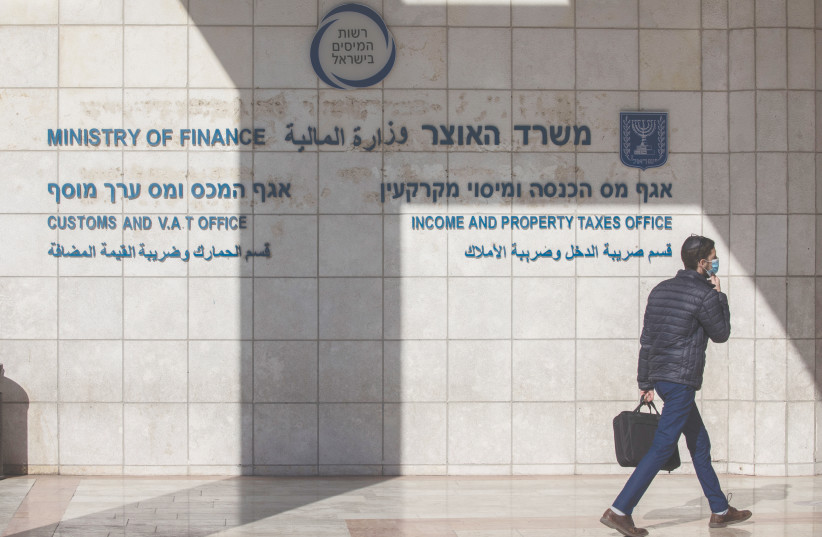The Israeli tax year ends on December 31. There may be many things to consider, including these:
<strong>The big picture</strong>:
The Israel-Hamas war is adding to the government’s budgetary needs. So, taxes won’t be cut any time soon.
<strong>War assistance</strong>:
Israeli businesses and others should check out their entitlement to government compensation for property damage, reduced business-revenue grants and salary subsidies, enhanced grants for frontline areas, evacuation allowances, unemployment pay for workers laid off, and National Insurance Institute reimbursement of salaries paid to IDF reservists called up. Consult your accountant and check governmental websites.
On the tax side, if business assets took a hit or were sold and are replaced this year, any loss may be deducted this year as an ordinary expense (see Income Tax Ordinance Sec. 27).
<strong>Businesses</strong>:
Businesses should generally consider, among other thing: adjusting monthly income-tax installments (mikdamot); income and income timing; expenses and expense timing; inventory (stock) count on December 31; other accruals or provisions. Is long-term project planning possible? Charitable donations? New industrial equipment may enable accelerated depreciation.
The tax law allows you to consider writing off bad customer debts and make reasonable provision for proven doubtful debts, e.g., in liquidation or other legal proceedings. Inventory write-offs or destruction require notification to the local Tax Office.

Intercompany transactions between related (50% or more) parties must be on arm’s-length terms. Annual transfer-pricing studies are necessary and helpful.
E-commerce businesses can sell to overseas customers unaffected by the war. But they are in for a bumpy tax ride in 2024 due to the Wayfair case in the US and various OECD and EU initiatives. Prime targets are automated websites, online marketplaces, warehouses, and digital supplies. Amending the business model can be easy and affective.
The Israel Tax Authority is chasing so-called “wallet companies” (hevrot arnak) with a battery of rules that can turn the 23% company tax rate on profits into income tax at rates ranging up to 50%. This affects various services, loans to shareholders, and use of company assets.
Are your pension, study funds (hishtalmut), and life insurance enough? Freelancers and 0%-or-more shareholders of private companies should consider pension funding and severance funding within limits, plus extra pension funding under Amendment 190 of the Income Tax Ordinance.
Did you travel on business this year? Keep the receipts for flights, accommodation, rental cars, and children’s education if applicable. And note the dates, as generous per diem subsistence deductions may be claimable of $157-$196 per day.
Consider liquidating any dormant Israeli company before the year-end to help avoid annual Companies Registry fees.
An Israeli international tax reform is proposed. If enacted, expect a tightening up in 2024 of rules regarding fiscal residency, exit tax, foreign tax credits, tax on undistributed “mobile income” of foreign companies that don’t bear risks or do not carry out material functions, and much more. Consider accelerating things into 2023.
<strong>On the personal side</strong>:
Loss utilization needs a lot of planning. The rules are slightly easier for foreign losses.
Consider dividends before December 31 from controlled foreign companies, family companies, and house-property companies.
Consult your lawyer if you don’t have up-to-date wills in each country where you have assets.
Are you expecting an inheritance from abroad? If so, plan against double taxation, i.e., inheritance and/or estate tax abroad and capital-gains tax in Israel upon a subsequent sale.
<strong>Personal investments</strong>:
Check inter alia whether to take any losses and/or any Israeli foreign tax credit or aliya exemption. New immigrants (olim) in year nine who are holding shares in controlled foreign companies or foreign professional companies may lose the last few months of their 10-year exemption on January 1 under a controversial position of the ITA.
Most trusts with an Israeli resident settlor or beneficiary are now taxable in Israel, unless an aliya exemption applies. A trust might be worth considering if: (1) beneficiaries all reside outside Israel; (2) to carry losses from generation to generation; (3) for beneficiaries who cannot handle money, etc.
Are your pension, hishtalmut, and life insurance enough? See above.
Israeli real estate: Israeli home rental income over NIS 5,471 per month (in 2023) is taxable. Above that level, there are multiple possibilities; check which suits you.
Charitable donations this year to approved Israeli charities in the year may qualify for a 35% tax credit, within limits (minimum NIS 200, maximum NIS 10,019,808 or 30% of income). For example, if you donate NIS 1,000, you may get a NIS 350 reduction in your Israeli tax bill.
As always, consult experienced tax advisers in each country at an early stage in specific cases.
The writer is a certified public accountant and tax specialist at Harris Consulting & Tax Ltd.
